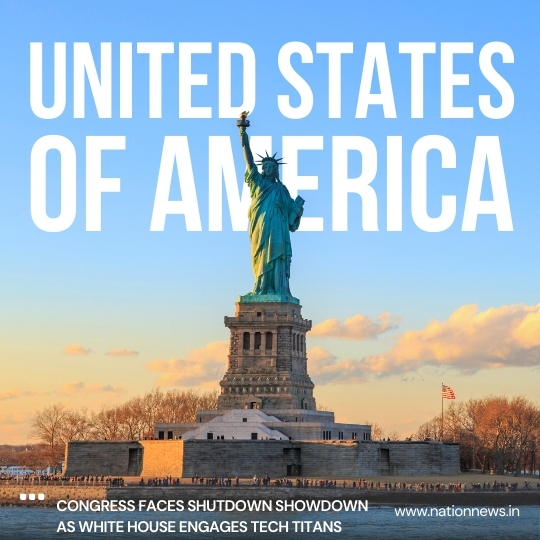Congress Faces Shutdown Showdown as White House Engages Tech Titans
Washington D.C. – As September gets underway, the U.S. political landscape is buzzing with activity across all branches of government. Congress has returned from its August recess to a packed legislative schedule with an impending government funding deadline, the White House continues to push its agenda through executive actions and key engagements, and the judiciary is setting the stage for future legal battles. Meanwhile, several states are gearing up for special elections that could offer insights into the nation’s political mood.
White House Focuses on Tech, Trade, and Preparedness
The White House has been actively engaged on multiple fronts. President Donald Trump hosted a dinner with prominent tech leaders, including Microsoft’s Bill Gates and Satya Nadella, Google’s Sundar Pichai, and Meta’s Mark Zuckerberg, to discuss advancements in artificial intelligence and investments in the United States.
In a significant move on trade policy, the administration announced modifications to its “reciprocal tariffs,” adding and removing certain goods from the list of items subject to these duties. The White House also issued a proclamation for National Preparedness Month, emphasizing the importance of readiness for natural disasters, and a Labor Day message championing the American worker.
Congress Returns to Pressing Deadlines and Legislative Debates
Congress is back in session with a critical and immediate priority: finalizing the budget for the fiscal year 2026 before the September 30th deadline to avert a government shutdown. The House of Representatives is set to consider several appropriations bills, including the often-contentious Labor, Health and Human Services, and Education spending bill.
Beyond the budget, a flurry of legislative activity is underway. The House will take up the Energy and Water spending bill, which aims to boost funding for nuclear energy and national security while cutting funds for some clean-energy programs. Committee hearings are scheduled on a range of topics, from the use of artificial intelligence in healthcare to oversight of federal forests.
Bipartisan efforts are also emerging, with the introduction of the “Teachers Are Leaders Act,” aimed at expanding professional development for educators, and growing momentum for the “Clean Slate Act” and “Fresh Start Act,” which focus on automatic record-sealing to aid in workforce reentry. In higher education, there are bipartisan discussions around accreditation reform to improve quality and accountability.
Supreme Court Consolidates Online Gaming Cases
The judicial branch is also making headlines. The U.S. Supreme Court has ordered the transfer of multiple cases challenging the “Promotion and Regulation of Online Gaming Act of 2025” from various High Courts to itself. This move will centralize the legal battle over the controversial law and pave the way for a definitive national ruling. While the U.S. Supreme Court’s September oral argument schedule is yet to be in full swing, state supreme courts, such as in California and Georgia, are actively hearing cases.
Special Elections on the Horizon
The 2025 election cycle, while quieter than a presidential election year, features several important contests. A special election is scheduled for September 9th in Virginia’s 11th congressional district to fill a vacancy. Later in the month, on September 23rd, Arizona’s 7th congressional district will also hold a special election.
Looking ahead, California will hold a statewide special election on November 4th concerning congressional redistricting. The major statewide elections for the year will be the gubernatorial races in New Jersey and Virginia. These elections will be closely watched for indications of the electorate’s sentiment on key national issues.
Key Policy Debates: Immigration and Education
Immigration remains a hot-button issue with the implementation of new, stricter visa rules. The U.S. Department of State has barred most non-immigrant visa applicants from applying outside their country of citizenship, ending a pandemic-era practice that allowed for “visa shopping” in third countries to bypass backlogs. Additionally, most non-immigrant visa interview waivers have been eliminated, requiring more applicants to appear in person.
In education, the debate over the federal government’s role and funding continues. The Trump administration is advocating for a more limited federal role and has been using its executive authority to influence state and local education policies, particularly concerning curriculum and school choice. The upcoming budget will be a key battleground for the future of federal education programs. Sources

